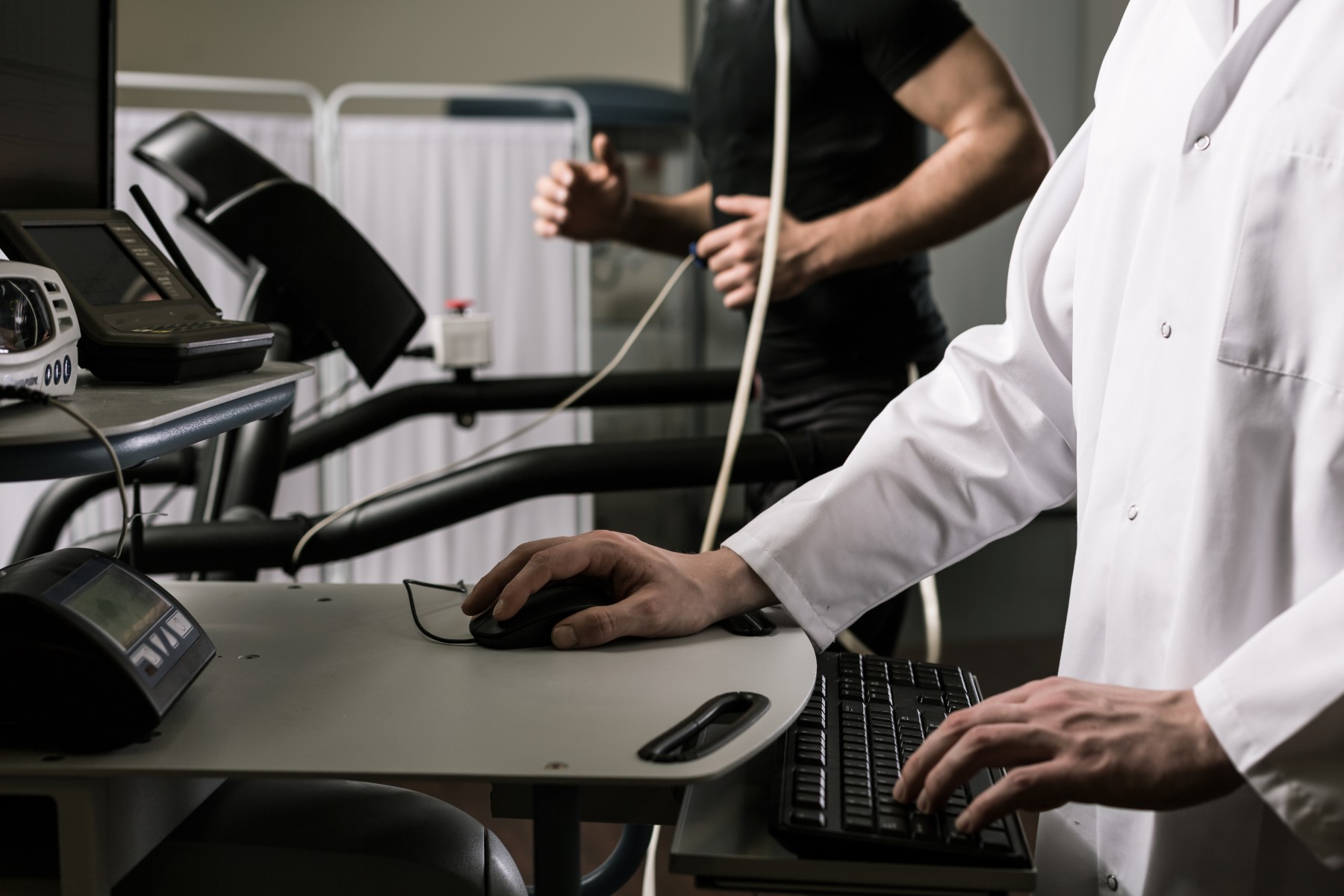Keeping an eye on first responder heart health
High stress jobs like police officers and firefighters may lead to heart issues

Christina Reifsteck knows the statistics all too well.
Law enforcement officers may not live as long as people in other professions. The job requires you to be in a constant state of hypervigilance for up to a 12-hour shift. The resulting stress may lead to serious heart issues.
But Reifsteck, a sergeant with the Rantoul, Illinois, police department, her colleagues and OSF HealthCare are trying to change that.
Rantoul police have partnered with OSF HealthCare Occupational Health and OSF HealthCare Cardiovascular Institute to have OSF provide heart screenings and the necessary follow-up appointments for officers.
“We wanted to make sure our officers have a better knowledge of what is going on inside their body,” Reifsteck says. “Sometimes you can’t see the problems.”
For Reifsteck, that need for knowledge played out on a gray February morning at OSF HealthCare Heart of Mary Medical Center in Urbana, Illinois. With monitors attached to her body, she walked, then ran on a treadmill while OSF Mission Partners (employees) observed her heart rate on a screen. It’s known as a stress test.
“The treadmill started out slow, and every couple minutes it got faster, and the incline raised higher,” Reifsteck recalls. “You did feel like at the end you were getting a workout. But it felt fine.”
“With the stress test, we try to identify someone’s functional capacity and if they demonstrate any evidence of impairment of blood flow to the heart,” says Alaa Ujayli, MD, an interventional cardiologist at OSF HealthCare Cardiovascular Institute in Urbana.
Down the hall, Reifsteck got pictures taken of her heart.
“We look at calcification of the coronary arteries, which is the beginning of plaque disease,” Dr. Ujayli says.
Reifsteck got reassuring news that her test results looked good. But a follow-up appointment with a cardiology provider was on her calendar for two days later.
“See where we are and if I need to make some lifestyle changes,” Reifsteck says. “First responders function better when they’re healthy.”
Dr. Ujayli agrees.
“Cardiovascular disease is a preventable illness,” he says. “If we establish preventive measures, we have a significant impact on the progression of the disease.”
Those measures include medication, talking with a dietitian to change eating habits, consistent exercise, better sleep habits and avoiding smoking and alcohol. Mental health care like meditation and visiting a counselor are also helpful for everyone, but especially first responders. More serious heart issues may require a procedure in the hospital.
Learn more about heart care on the OSF HealthCare website.

